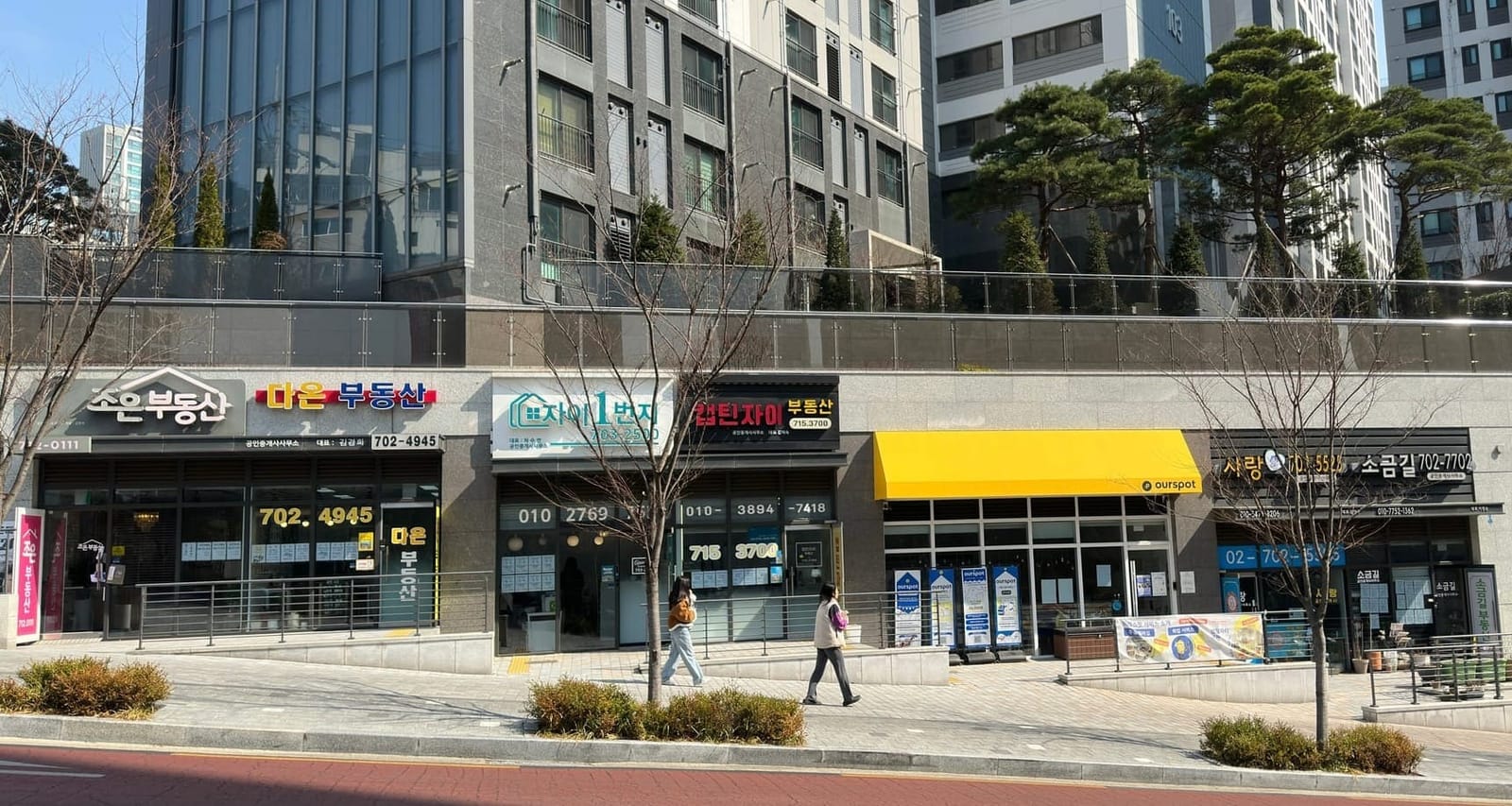Renting in Korea? Start Here: Understanding K-Realtors (Budongsan)

Welcome.
Renting in Korea’s a maze—pushy agents, sketchy landlords, hidden traps. I’m here to cut through it. As a licensed Seoul realtor, I’ll answer:
- Do you need a budongsan?
- How does it work?
- Who’s good?
- What’s the cost?
- When to reach out?
Let’s dig in.
Do You Need a Budongsan?
Forget rental websites or “for rent” signs. In Korea, budongsan—aka realtors (부동산, 공인중개사)—run the show. These small, local offices handle nearly every rental deal. Even direct landlord-tenant talks loop them in for contracts and legal stuff.
Why? Culture, expertise, mediation. But the real kicker: they take the risk—dodgy tenants, deposit scams, legal headaches. They’re liable, with ₩200 million insurance minimum. And, Korea makes it easy for tenants or landlords to claim the compensation. Translation: they’re your safety net.
Apps like Naver Budongsan or Zigbang? Sure, they list units. But the agent’s still the gatekeeper. Walk into a budongsan office or call one up—either way, they’re your key to renting here.
What Happens When You Contact One?
Here’s the drill:
They start with their own listings—properties where they rep both sides for max commission. Found a place online? They’ll show it, then pitch unlisted gems they’ve locked down. Smart move—it doubles their pay.
No luck? They co-broker (공동중개)—team up with other agents. You get more options; they split the fees. Over half of deals (70-80% in busy spots) go this way.
Like a unit? They will want you to drop a holding deposit (가계약금)—think “earnest money”—to lock it in and meet the landlord. I will cover the full lease process in another post.
Bottom line: they show, negotiate, co-broker, and paper it up—smoothing the ride for you and the owner.
Who's Good?
In Seoul’s hot zones, chances are you will end up signing through co-brokering. Therefore, the listings themselves are often the same, no matter which agent you go through.
The difference? Service.
A solid budongsan works for you—digs up options, negotiate for your way, explains the mess, keeps it clear. A dud rushes you, sides with landlords, or drags their feet.
Same property, same fee—pick an agent who doesn’t make you sweat.
What's the Cost?
Budongsan agents are licensed, government-registered, and capped by law on fees. Seoul’s max rates are based on “converted deposit.”
Converted Deposit = deposit + monthly rent × 100
(or, × 70 if the formula's result is under ₩50 million)
They almost always charge the limit. Screw-ups or slack service? Haggle it down. No upfront costs—pay only when you sign. Tour 20 places and bail? You don't owe a single Korean Won.
Seoul Housing Lease Brokerage Commission Rates
| Converted Deposit | Rate Cap | Max. Fee |
|---|---|---|
| Less than ₩50M | 0.5% | ₩200,000 |
| ₩50M to less than ₩100M | 0.4% | ₩300,000 |
| ₩100M to less than ₩600M | 0.3% | No limit |
| ₩600M to less than ₩1.2B | 0.4% | No limit |
| ₩1.2B to less than ₩1.5B | 0.5% | No limit |
| ₩1.5B or more | 0.6% | No limit |
When to Hit Them Up?
If you're moving by the end of your lease, you must give a 60-day notice to your current landlord. Start finding good agents three months before your lease ends—time to shop smart, not panic. Agents say it’s “too early”? Red flag. Ditch ‘em.
If you're moving early by breaking your lease, get a competent agent ASAP—I’ll cover that in a separate post.
From abroad? Find one who’s done remote deals. Reach a few early and take some time to see whether you can trust and delegate to them.
Don’t sweat chasing a neighborhood pro. Pick someone who fits your style and goes the extra mile for you—they’ll do the work and link you to the right expert through co-brokering. (Now you know!)